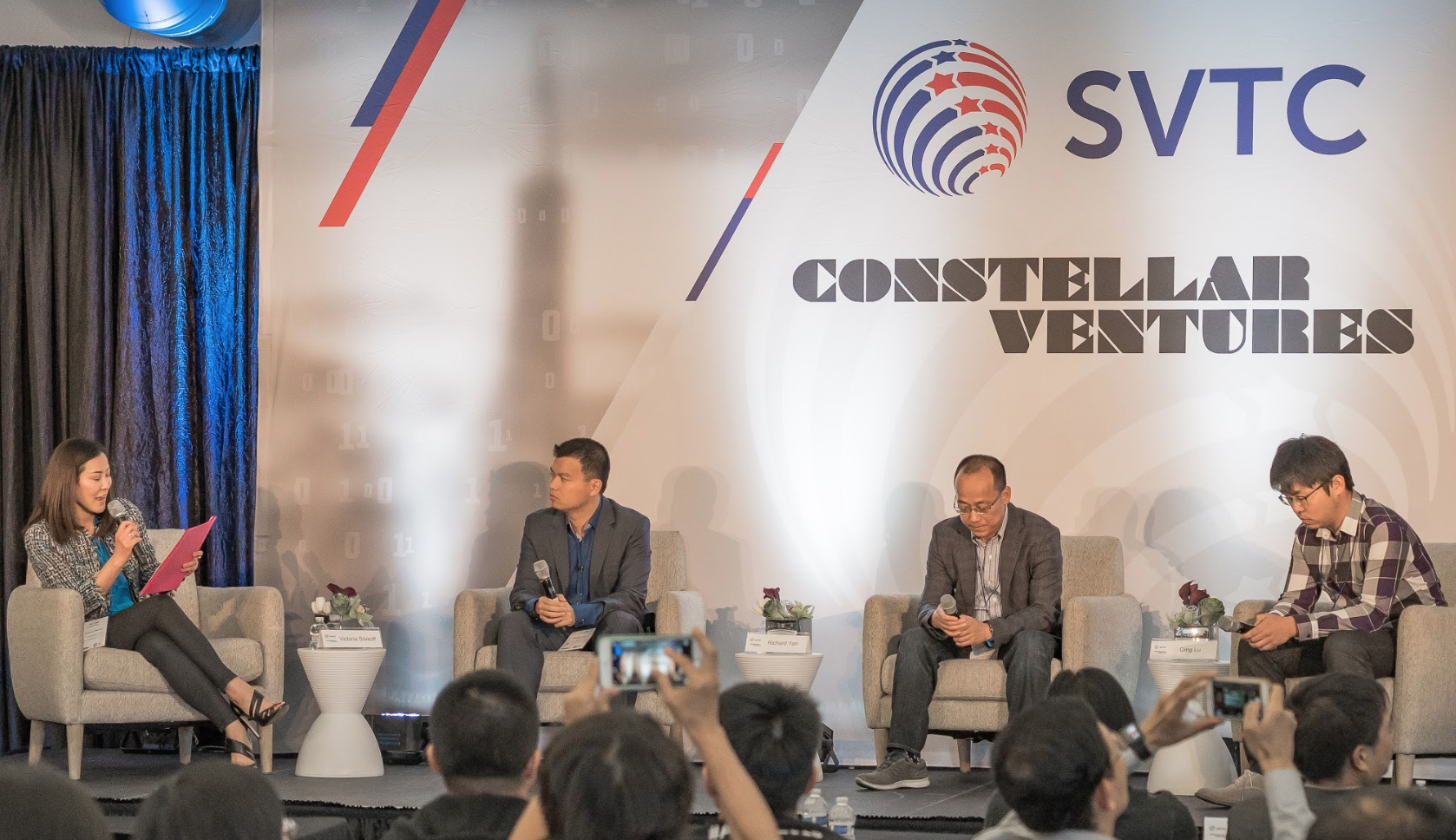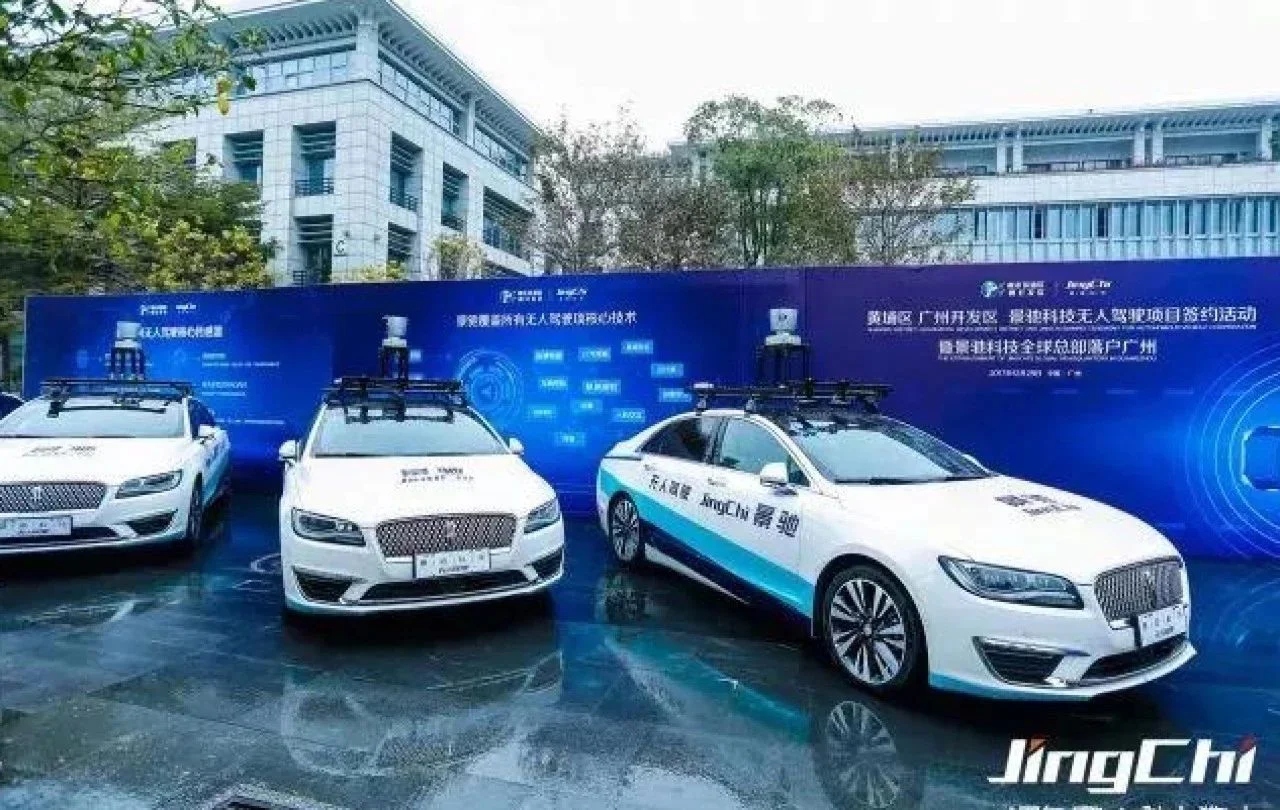AI+ 2018 Summit “AI in China vs. in the US” Panel: What are the similarities and differences?
For the last panel of this year’s forum, Victoria Slivkoff (Head of Global Strategic Partnerships and APAC General Manager for Innovation & Entrepreneurship for the University of California system) moderated the “AI in China vs. in the US” panel, in which Richard Yan (Chief Operating Officer of Vited Labs Limited), Qing Lu (Cofounder and Chief Financial Officer of JingChi.ai), and Song Cao (Cofounder and Chief Executive Officer of Turing Video) participated.
How large is the gap between AI technology in China and the United State?
Compared with the entire industry composition of AI in the United States, AI in China mainly focuses on the application level, with only initial development in the foundational level (processors and chip technology) and the technical level (natural language processing, computer vision imaging, and technical platforms).
Turing Video's ground security robot NIMBO
Song Cao, who is also a software engineer at security robotics company, Turing Video, has research experience in computer vision technology and robotics at Tsinghua University and the University of Southern California. He believes that the gap between China and the United States in AI research is gradually narrowing, but the United States is still the leader in AI research.
Comparison of AI between China and the US
The United States, the main driving force behind the development of AI technology, is kickstarting the developing from step 0 to 1
China, the main disseminator of AI technology, will bring it from step 1 to N
In addition, Cao believes that it is easier to obtain data in China, which is useful for developing and commercializing AI technology, due to the differences in policies regulating consumer data use and privacy protection in China and the United States.
What are the respective advantages of China and the United States in AI technology?
US’ Advantages
The AI industry composition in the US is more reasonable, and for foundational-level AI technology like processors and chips, both the number of enterprises and the amount of financing in the US vastly outnumbers China’s.
The US has many AI experts and professionals in the industry.
Compared with the United States, China places more emphasis on the application level, and only its developments in natural language processing, computer vision, and intelligent robots can compete with the United States on a technical level. It can be said that the Chinese AI industry is more “top-heavy” compared with U.S. AI industry, which is more “balanced” in its layout.
The competition in the field of artificial intelligence is mainly reflected in the competition for AI experts, which includes not only the competition for those working directly in the AI industry, but also the competition for those engaged in research and development involving AI. Due to the early start of the development of AI technology in the United States and its numerous world-class universities, the US is far ahead in the competition for AI talents.
China’s advantages
China's market is unique in its large size and huge market demand will stimulate the supply side and promote the rapid growth of enterprises.
China views the development of AI technology as important on a national level. To this end, the government has invested capital in numerous AI industrial parks and science parks, which do not exist in the United States.
China's advantages in artificial intelligence are mainly reflected at the market level. At the same time, China's huge population has produced large amounts of data, which are “sufficient and necessary conditions” for the commercialization of AI technology.
JingChi’s move from Silicon Valley to the Guangzhou Development Zone six months after its establishment is a good example of the Chinese government's interest in and investment into the development of AI.
Qing Lu said that the local government provided JingChi with support and assistance in three key areas:
1. Autonomous driving tests
2. Maps of the city
3. Office space
Lu said he has always insisted that government support and capital are “good” rather than “necessary.” However, the Chinese government is likely one of the only avenues that have could have provided such strong support for a six-month-old self-driving startup, and JingChi could not have developed so rapidly without the government’s support. Lu also thanked SVSTA and Guangzhou GoogolPark for facilitating JingChi’s move to Guangzhou.
What are the challenges of and opportunities for AI in China?
China's AI industry is currently facing the challenges brought about by the Sino–US trade war.
The trade war has placed stricter limits on the exports of American AI chips and hardware technology into China, leading to the need for China to increase its research and development efforts in the field of AI infrastructure.
In China, AI technology has the opportunity to develop in all fields. According to Richard Yan, Chief Operating Officer of Vited Labs Limited, AI in conjunction with blockchain has the most potential in areas such as payment systems, office workflow, public services.


